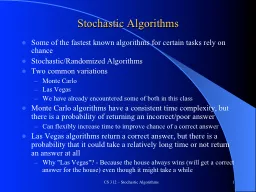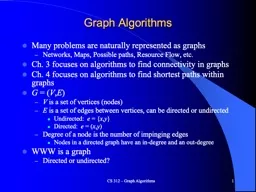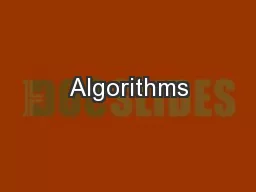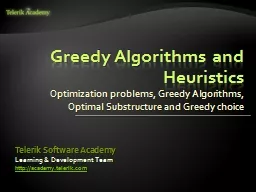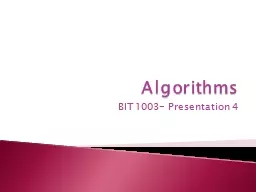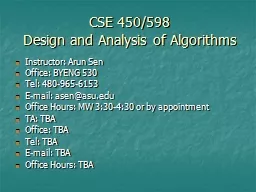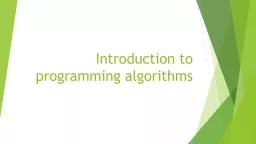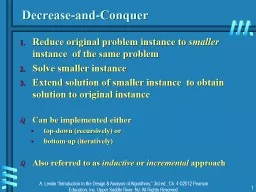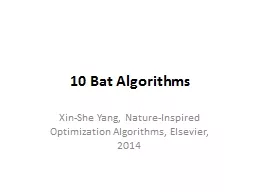PPT-Introduction to Algorithms
Author : aaron | Published Date : 2019-11-21
Introduction to Algorithms Greedy Algorithms CSE 680 Prof Roger Crawfis Optimization Problems For most optimization problems you want to find not just a solution
Presentation Embed Code
Download Presentation
Download Presentation The PPT/PDF document "Introduction to Algorithms" is the property of its rightful owner. Permission is granted to download and print the materials on this website for personal, non-commercial use only, and to display it on your personal computer provided you do not modify the materials and that you retain all copyright notices contained in the materials. By downloading content from our website, you accept the terms of this agreement.
Introduction to Algorithms: Transcript
Download Rules Of Document
"Introduction to Algorithms"The content belongs to its owner. You may download and print it for personal use, without modification, and keep all copyright notices. By downloading, you agree to these terms.
Related Documents


